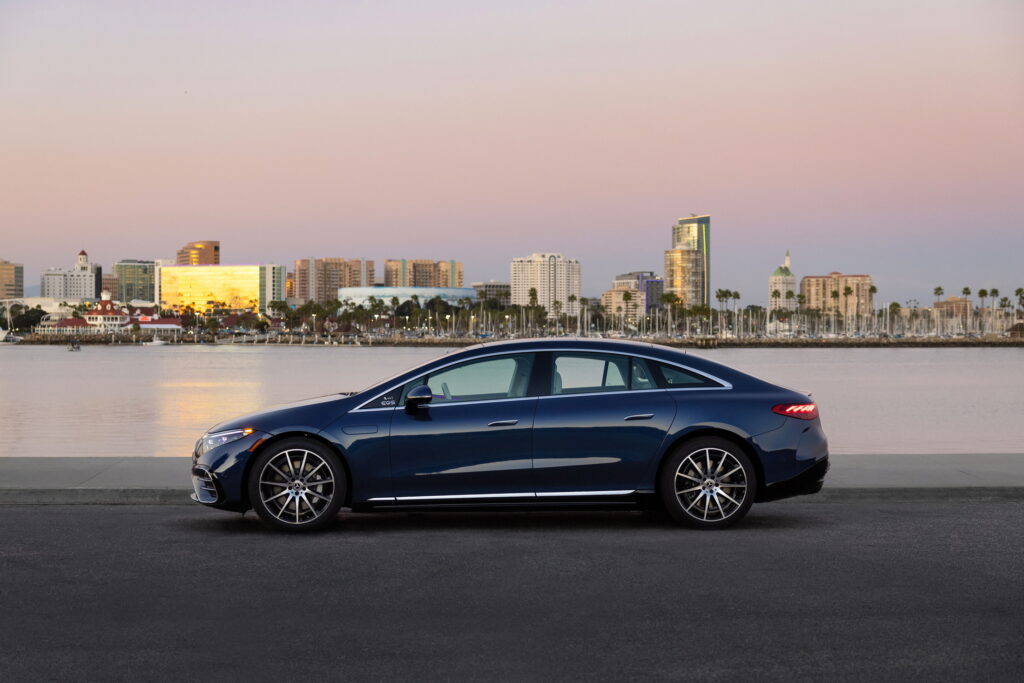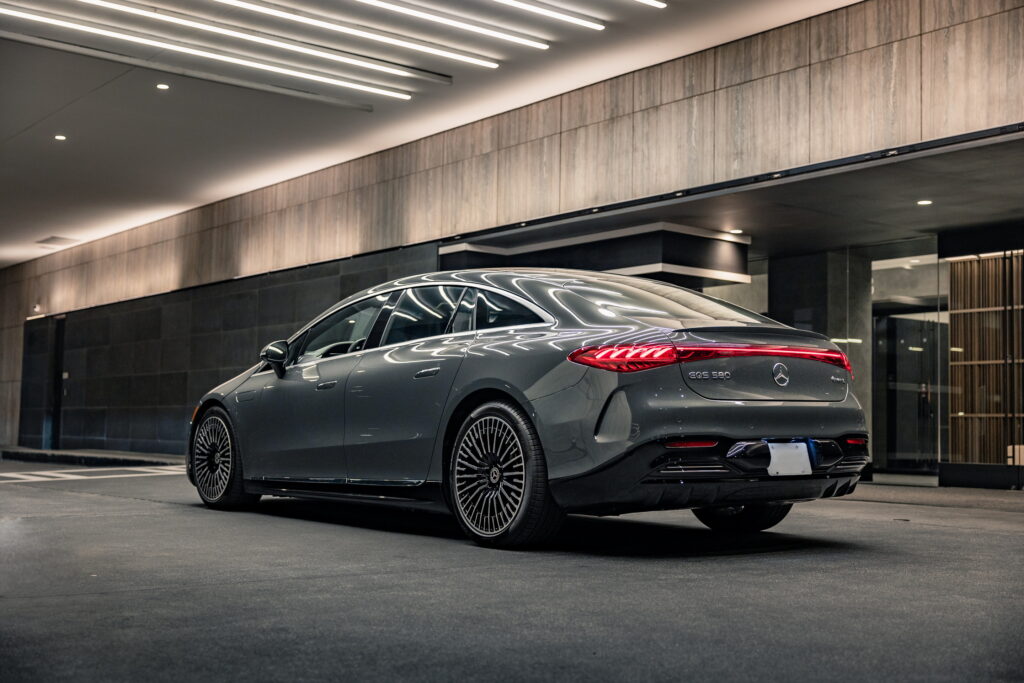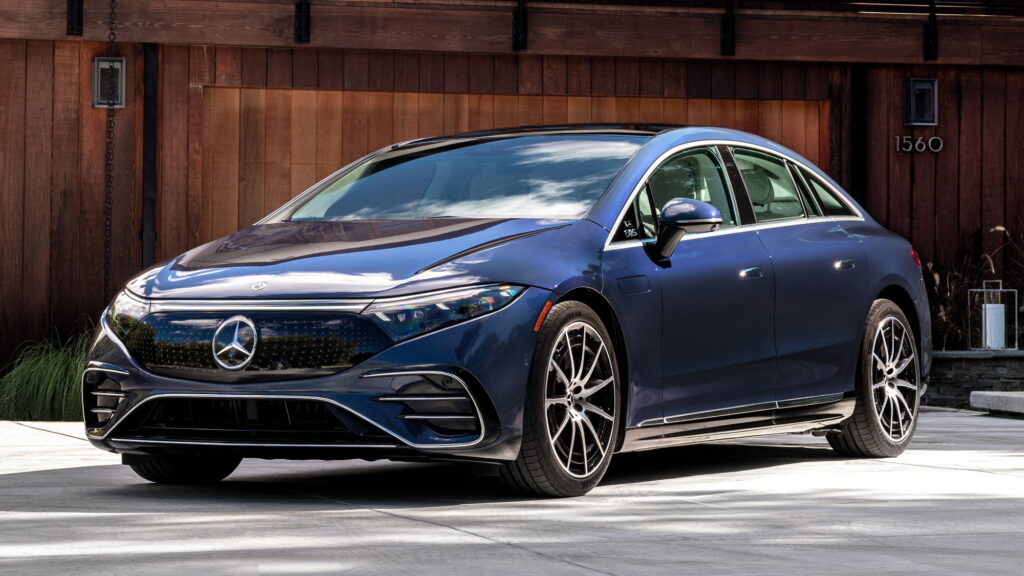- An EQS prototype has been tested with a 1.0-liter two-cylinder engine serving as a range extender.
- The presence of a small engine allowed Mercedes to use a smaller battery pack.
- it is unclear how much money the company spent on the project.
Mercedes-Benz was experimenting with a range-extender powertrain for its EVs but has reportedly abandoned the project, concluding that it would simply be a “transitional technology.”
Unnamed sources with information on the brand’s development activities claim that Mercedes has tested an EQS-based model with a turbocharged 1.0-liter two-cylinder engine up front and serving as a generator. According to the same info, the engine features a front-mounted exhaust system and provides supplemental power to the rear-mounted electric motor and energy to the lithium-ion battery pack.
Read: The 2025 EQS Actually Looks Like A Mercedes Now
“We have created [range-extender] prototypes based on existing models, both for packaging and road testing,” a source told Autocar. “In the end, though, we concluded that the range-extender drivetrain is a transitional technology with a relatively short-term benefit in terms of sales and comparatively high production costs.”
No details have been provided about the capacity of the prototype’s fuel tank but it is thought to have given the car a range beyond the 487 miles (784 km) offered by the rear-wheel drive Mercedes EQS 450+.

The 1.0-liter two-cylinder engine is said to be half of the 2.0-liter turbo unit Mercedes uses for several of its models. The presence of this small range extender allowed for using a battery pack that’s approximately 50% smaller, compared to the all-electric EQS. This reduces weight, one of the enemies of EVs equipped with large battery packs designed to travel as far as possible on a single charge.
It is unclear how long Mercedes-Benz has worked on this range-extender program nor how much it has spent on the project.




